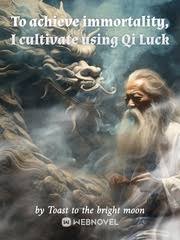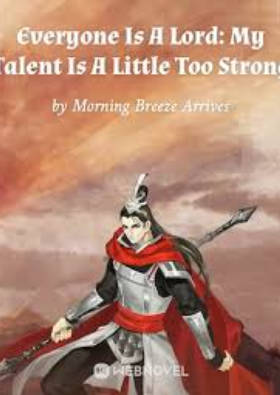Chapter 823: Privileges for the winner
"Praising me is the pride of Jewish women."
Leaning in Ryan's ear, Natalie lowered her voice, "If the film is okay, they will support me in this awards season."
"This is a good thing." Ryan nodded slightly. "My dear, if nothing else, your biggest opponent will be James Cameron."
"I saw Jim last week." Natalie obviously disagrees. "He doesn't think he will win the prize, even if "Avatar" is as successful as you expected."
The lights in the theater suddenly went out, and the release of Miramax appeared on the screen. Ryan did not continue to say anything. In fact, James Cameron didn’t care about the little golden man anymore. The Oscar’s best director’s weight was in the world. In Wang's mind, I am afraid that a new film technology is not as important yet.
Cameron himself knows very well that such a sci-fi movie made entirely with cg cannot win the favor of the Oscars.
However, Disney will still provide public relations for "Avatar" because it can increase the commercial revenue of the film to a certain extent, and the focus of public relations is definitely not the best director.
Past and present, "Avatar"'s biggest Oscar opponent has kicked off on the big screen.
The bomb disposal team of company b consists of three people. They sacrificed the bomb disposal captain in a mission, so the film protagonist James joined in. James is a person with a heroic complex. He is not afraid of his own death. He does not abide by the operating procedures at all. He always dismantles the bombs single-handedly, and even takes the risk of taking off the bomb dismantling suit again and again for the convenience of his actions. .
Unlike his teammates, James is not in a state of trembling fear and praying like "today we survived". He is more like a crazy technical master. When he goes with a bunch of bombs, he is more focused. Dare to give up all security measures.
This old man seems to regard dangerous work like bomb disposal as simple as repairing a car, just like hackers are obsessed with Internet technology. He is obviously "obsessed" in the process of bomb disposal. When people have evacuated the bomb and can detonate it safely, James refused to evacuate. For the safety of his comrades and the Iraqi people, he always insisted on removing the bomb.
To be sure, during the bomb disposal process, James got a strong sense of pleasure. When he dismantled the bomb and returned to the "Humvee" to light a cigarette, his expression was as if he had just finished making love. Tired and satisfied.
Perhaps James really does not fear death, but it is this man who is not afraid of self-death, but was touched by the deaths of others in the process of carrying out the mission, including US military comrades and Iraqis. The deaths of these people caused him indelible. His impression, over time, affects his psychology and behavior.
James faced an invisible enemy and fought a war that he didn't know who to fight with, all of which made him a little at a loss. But the unique heroism complex of the Americans in his bones made him want to make everything better in front of him through his own efforts, because on this seemingly illusory battlefield, the casualties of his comrades were real.
Let's talk about this kind of heroism, when a person holds firm beliefs. When he has a clear sense of self, and shows courage and courage beyond ordinary people in his actions, people say that his behavior is heroic when he achieves feats that benefit the group.
This is one of the positions of the film. Although the image of the US military in it is not tall, even as weak as the Iraqis, it is extremely positive. This may be different from the way "Transformers" shows the strength of the US military, but in essence, there is not much difference.
Because they are all shaping the positive image of the US military.
Of course, these are the basic standpoints of the film, and it is all ‘reflection’ wrapped around it.
The film uses the method of documentary shooting. The dangling shoulder-mounted camera lens brings the real Iraqi battlefield, surrounded by feared American soldiers and ant-like Iraqis. In the war, everyone is weak.
U.S. soldiers armed to the teeth are likely to board the "turf plane" at any time; Iraqi militants also easily fell to death under the guns of the U.S. military; not to mention the civilians, any small conflict between the two sides is enough to crush them.
Perhaps it is indeed incapable of the big scenes of war films. Natalie obviously used more literary and casual narrative methods of the film, and through James’ eyes, she showed each fragment, although there is no compact narrative and repeated heights. . Tide, but real suffocating.
The bomb blaster who died at the beginning was Natalie showing the correct bomb disposal procedure to the audience. Through the demonstration of the formal procedure, he left a reference for James' crazy ‘personal heroism’ behavior after he appeared on the stage.
The death of the bomb killer was actually Natalie’s opening remarks. She first broke the people’s usual movie-watching mentality, and solemnly declared that everyone is weak in the face of war. There is no Steve Rogers on the real battlefield, let alone none. Rambo didn't kill him dozens of times.
In the death of the bounty hunter, the hunter’s boss’s appearance was extremely cool. Aside from the sturdy outfit, just the Barrett sniper in his hand can kill a large movie. According to the conventional movie thinking, this is another A superhero who can sweep all war movies without death.
But a few minutes later, the leader of the hunter who pulled the wind was shot and killed by the Iraqis, and once again showed the audience the cruelty of war.
In the subsequent death of the medical officer, the psychological medical officer in James's army wanted to go out and give the bomb disposal team practical help, so he found the James team who was about to be on duty and asked for a mission together.
Unfortunately, an earthy bomb killed the colonel.
Still the same sentence, in the face of war, the official title and position are not the sign of death letting you go. After the colonel was killed, a soldier rushed over and shouted in pain, "I was still teaching him how to use the radio..."
Life is gone if there is no life, even if the last minute is still bragging together.
Natalie used the camera to tell the audience so coldly and ruthlessly-war, that's it!
In the death of'Beckham', James completely mistakenly recognized the'Beckham' who sold DVDs. He thought he knew Iraqis better than other Americans and could make friends with Iraqis. In fact, he and other people Americans are no different. They can't even tell who is an Iraqi, even if it is an Iraqi who gets along with him day and night.
Americans look at Iraqis, Iraqis look at Americans, Westerners look at Easterners, and Easterners look at Westerners. In fact, in everyone’s eyes, people of the other race are the same, and it’s difficult to distinguish clearly. This is the estrangement, this kind of leap. Racial estrangement, like a struggle between faith and ideology, will never disappear.
Here, Natalie obviously changed the script, and what James said-Americans don't know what Iraqis want, and Iraqis don't bother to let Americans know what they want-I am afraid it is very good for this situation. Portrayal of.
Under the war, children are the weakest to bear the brunt. Although'Beckham' is still alive, the children lying there as corpse bombs are real.
Although the whole film tends to be realistic and plain, there are also small climaxes such as the death of the "body bomb".
An Iraqi took the initiative to ask the U.S. patrol for help, saying that a bomb was strapped to his body, but he did not want to make a "body bomb" and begged the U.S. military to save him.
This is a time bomb, leaving only two minutes for James. James is racing against time to dismantle the bomb. According to the usual pattern of movies around the world, James will cut the red or blue line at the last second to rescue Iraqi civilians, and then soldiers and civilians will appear. The situation of the big party.
However, the time did not reach the end, James did not choose the red line or the blue line, so he gave up bomb disposal, the Iraqis were blown into powder, James was overturned to the ground in the process of fleeing, Natalie again used cruel The ending shattered the extravagant expectations of the audience. This is war, and war is not about making movies.
This situation shatters not only the hopes of the audience, but also the box office of the film. It is strange that such a cold film can sell well.
The world did not welcome the American soldiers. When James evacuated, the Iraqi children followed the Hummer Jeep and threw stones, and James could not adapt to the life after returning to the country and returned to the battlefield in Iraq.
These two fragments echo each other, and the war has become an unbreakable curse, which not only makes people irresistible, but also makes people unable to escape.
In the hearts of the offspring of Iraq, the seeds of hatred have been planted and will germinate and bear fruit at any time in the years to come, while American soldiers have been deeply trapped in war and unable to adapt to a normal peaceful life, as if war had become the only meaning of their existence.
Both parties are victims, there is no difference between strong and weak, both are driven by a spell called "war"...
As a director, Natalie did not directly make moral judgments about war in the film did not use the cruelty of the war scenes to arouse the audience's humanitarian sympathy, nor did she create dramatic scenes to satirize the reasons why the United States launched the war.
Of course, she will not "stand" on the position of Iraq to view the current war from their point of view.
Natalie has grasped the most important point very well. All the reflections in the film are based on the position of the United States, based on the most basic condition that the United States is the victor of the Iraq War.
Just like "Saving Private Ryan", reflecting on the war is the privilege of the victor.
When the war can obtain great benefits, they will attack fearlessly; when the justice of the war is in doubt, they still will not give up...
In some respects, "The Hurt Locker" completely inherits the fine traditions of Hollywood war reflection films, fully conforms to the current social and political situation, conforms to the needs of mainstream values, and conforms to the requirements of Oscars who always express their political stance. (To be continued...)
...
...()
Leaning in Ryan's ear, Natalie lowered her voice, "If the film is okay, they will support me in this awards season."
"This is a good thing." Ryan nodded slightly. "My dear, if nothing else, your biggest opponent will be James Cameron."
"I saw Jim last week." Natalie obviously disagrees. "He doesn't think he will win the prize, even if "Avatar" is as successful as you expected."
The lights in the theater suddenly went out, and the release of Miramax appeared on the screen. Ryan did not continue to say anything. In fact, James Cameron didn’t care about the little golden man anymore. The Oscar’s best director’s weight was in the world. In Wang's mind, I am afraid that a new film technology is not as important yet.
Cameron himself knows very well that such a sci-fi movie made entirely with cg cannot win the favor of the Oscars.
However, Disney will still provide public relations for "Avatar" because it can increase the commercial revenue of the film to a certain extent, and the focus of public relations is definitely not the best director.
Past and present, "Avatar"'s biggest Oscar opponent has kicked off on the big screen.
The bomb disposal team of company b consists of three people. They sacrificed the bomb disposal captain in a mission, so the film protagonist James joined in. James is a person with a heroic complex. He is not afraid of his own death. He does not abide by the operating procedures at all. He always dismantles the bombs single-handedly, and even takes the risk of taking off the bomb dismantling suit again and again for the convenience of his actions. .
Unlike his teammates, James is not in a state of trembling fear and praying like "today we survived". He is more like a crazy technical master. When he goes with a bunch of bombs, he is more focused. Dare to give up all security measures.
This old man seems to regard dangerous work like bomb disposal as simple as repairing a car, just like hackers are obsessed with Internet technology. He is obviously "obsessed" in the process of bomb disposal. When people have evacuated the bomb and can detonate it safely, James refused to evacuate. For the safety of his comrades and the Iraqi people, he always insisted on removing the bomb.
To be sure, during the bomb disposal process, James got a strong sense of pleasure. When he dismantled the bomb and returned to the "Humvee" to light a cigarette, his expression was as if he had just finished making love. Tired and satisfied.
Perhaps James really does not fear death, but it is this man who is not afraid of self-death, but was touched by the deaths of others in the process of carrying out the mission, including US military comrades and Iraqis. The deaths of these people caused him indelible. His impression, over time, affects his psychology and behavior.
James faced an invisible enemy and fought a war that he didn't know who to fight with, all of which made him a little at a loss. But the unique heroism complex of the Americans in his bones made him want to make everything better in front of him through his own efforts, because on this seemingly illusory battlefield, the casualties of his comrades were real.
Let's talk about this kind of heroism, when a person holds firm beliefs. When he has a clear sense of self, and shows courage and courage beyond ordinary people in his actions, people say that his behavior is heroic when he achieves feats that benefit the group.
This is one of the positions of the film. Although the image of the US military in it is not tall, even as weak as the Iraqis, it is extremely positive. This may be different from the way "Transformers" shows the strength of the US military, but in essence, there is not much difference.
Because they are all shaping the positive image of the US military.
Of course, these are the basic standpoints of the film, and it is all ‘reflection’ wrapped around it.
The film uses the method of documentary shooting. The dangling shoulder-mounted camera lens brings the real Iraqi battlefield, surrounded by feared American soldiers and ant-like Iraqis. In the war, everyone is weak.
U.S. soldiers armed to the teeth are likely to board the "turf plane" at any time; Iraqi militants also easily fell to death under the guns of the U.S. military; not to mention the civilians, any small conflict between the two sides is enough to crush them.
Perhaps it is indeed incapable of the big scenes of war films. Natalie obviously used more literary and casual narrative methods of the film, and through James’ eyes, she showed each fragment, although there is no compact narrative and repeated heights. . Tide, but real suffocating.
The bomb blaster who died at the beginning was Natalie showing the correct bomb disposal procedure to the audience. Through the demonstration of the formal procedure, he left a reference for James' crazy ‘personal heroism’ behavior after he appeared on the stage.
The death of the bomb killer was actually Natalie’s opening remarks. She first broke the people’s usual movie-watching mentality, and solemnly declared that everyone is weak in the face of war. There is no Steve Rogers on the real battlefield, let alone none. Rambo didn't kill him dozens of times.
In the death of the bounty hunter, the hunter’s boss’s appearance was extremely cool. Aside from the sturdy outfit, just the Barrett sniper in his hand can kill a large movie. According to the conventional movie thinking, this is another A superhero who can sweep all war movies without death.
But a few minutes later, the leader of the hunter who pulled the wind was shot and killed by the Iraqis, and once again showed the audience the cruelty of war.
In the subsequent death of the medical officer, the psychological medical officer in James's army wanted to go out and give the bomb disposal team practical help, so he found the James team who was about to be on duty and asked for a mission together.
Unfortunately, an earthy bomb killed the colonel.
Still the same sentence, in the face of war, the official title and position are not the sign of death letting you go. After the colonel was killed, a soldier rushed over and shouted in pain, "I was still teaching him how to use the radio..."
Life is gone if there is no life, even if the last minute is still bragging together.
Natalie used the camera to tell the audience so coldly and ruthlessly-war, that's it!
In the death of'Beckham', James completely mistakenly recognized the'Beckham' who sold DVDs. He thought he knew Iraqis better than other Americans and could make friends with Iraqis. In fact, he and other people Americans are no different. They can't even tell who is an Iraqi, even if it is an Iraqi who gets along with him day and night.
Americans look at Iraqis, Iraqis look at Americans, Westerners look at Easterners, and Easterners look at Westerners. In fact, in everyone’s eyes, people of the other race are the same, and it’s difficult to distinguish clearly. This is the estrangement, this kind of leap. Racial estrangement, like a struggle between faith and ideology, will never disappear.
Here, Natalie obviously changed the script, and what James said-Americans don't know what Iraqis want, and Iraqis don't bother to let Americans know what they want-I am afraid it is very good for this situation. Portrayal of.
Under the war, children are the weakest to bear the brunt. Although'Beckham' is still alive, the children lying there as corpse bombs are real.
Although the whole film tends to be realistic and plain, there are also small climaxes such as the death of the "body bomb".
An Iraqi took the initiative to ask the U.S. patrol for help, saying that a bomb was strapped to his body, but he did not want to make a "body bomb" and begged the U.S. military to save him.
This is a time bomb, leaving only two minutes for James. James is racing against time to dismantle the bomb. According to the usual pattern of movies around the world, James will cut the red or blue line at the last second to rescue Iraqi civilians, and then soldiers and civilians will appear. The situation of the big party.
However, the time did not reach the end, James did not choose the red line or the blue line, so he gave up bomb disposal, the Iraqis were blown into powder, James was overturned to the ground in the process of fleeing, Natalie again used cruel The ending shattered the extravagant expectations of the audience. This is war, and war is not about making movies.
This situation shatters not only the hopes of the audience, but also the box office of the film. It is strange that such a cold film can sell well.
The world did not welcome the American soldiers. When James evacuated, the Iraqi children followed the Hummer Jeep and threw stones, and James could not adapt to the life after returning to the country and returned to the battlefield in Iraq.
These two fragments echo each other, and the war has become an unbreakable curse, which not only makes people irresistible, but also makes people unable to escape.
In the hearts of the offspring of Iraq, the seeds of hatred have been planted and will germinate and bear fruit at any time in the years to come, while American soldiers have been deeply trapped in war and unable to adapt to a normal peaceful life, as if war had become the only meaning of their existence.
Both parties are victims, there is no difference between strong and weak, both are driven by a spell called "war"...
As a director, Natalie did not directly make moral judgments about war in the film did not use the cruelty of the war scenes to arouse the audience's humanitarian sympathy, nor did she create dramatic scenes to satirize the reasons why the United States launched the war.
Of course, she will not "stand" on the position of Iraq to view the current war from their point of view.
Natalie has grasped the most important point very well. All the reflections in the film are based on the position of the United States, based on the most basic condition that the United States is the victor of the Iraq War.
Just like "Saving Private Ryan", reflecting on the war is the privilege of the victor.
When the war can obtain great benefits, they will attack fearlessly; when the justice of the war is in doubt, they still will not give up...
In some respects, "The Hurt Locker" completely inherits the fine traditions of Hollywood war reflection films, fully conforms to the current social and political situation, conforms to the needs of mainstream values, and conforms to the requirements of Oscars who always express their political stance. (To be continued...)
...
...()






